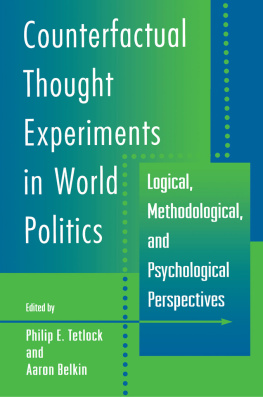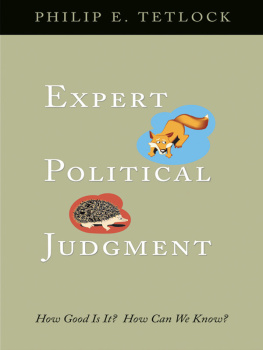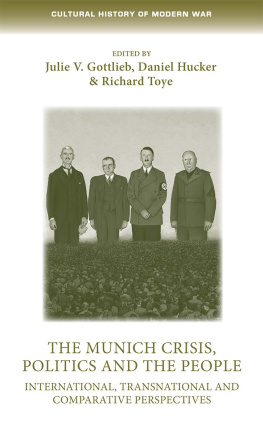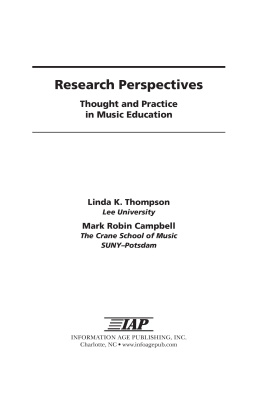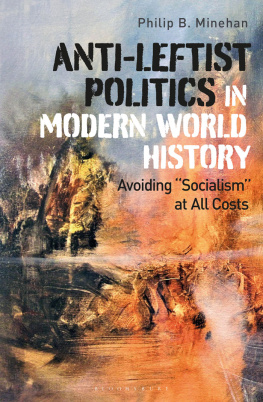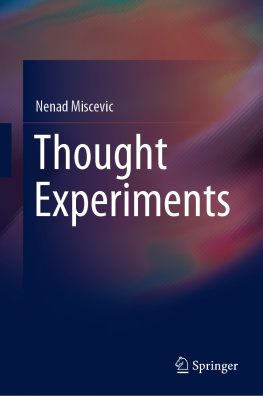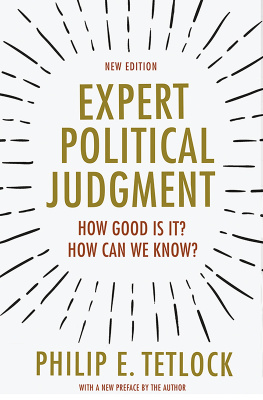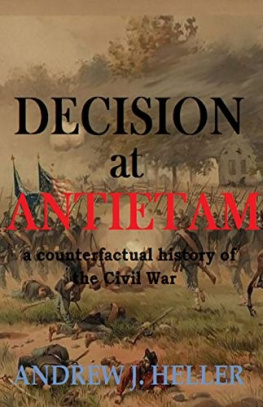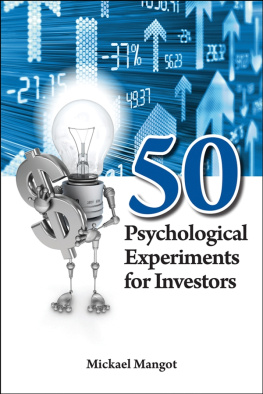COUNTERFACTUAL THOUGHT EXPERIMENTS
IN WORLD POLITICSSponsored by the Committee on International Peace and Security
of the Social Science Research Council
COUNTERFACTUAL THOUGHT
EXPERIMENTS IN WORLD POLITICS
LOGICAL, METHODOLOGICAL, AND
PSYCHOLOGICAL PERSPECTIVES
Edited by Philip E. Tetlock and Aaron Belkin
PRINCETON UNIVERSITY PRESS PRINCETON, NEW JERSEY
Copyright 1996 by the Social Science Research Council
Published by Princeton University Press, 41 William Street,
Princeton, New Jersey 08540
In the United Kingdom: Princeton University Press, Chichester, West Sussex
All Rights Reserved
Library of Congress Cataloging-in-Publication Data
Counterfactual thought experiments in world politics : logical, methodological, and psychological perspectives / edited by Philip E. Tetlock and Aaron Belkin. p. cm.
Includes bibliographical references and index.
ISBN 0-691-02792-7 (cl : alk. paper). ISBN 0-691-02791-9 (pb : alk. paper)
1. World politics. 2. HistoryPhilosophy. 3. Counterfactuals (Logic). I. Tetlock, Philip. II. Belkin, Aaron, 1966-
D16.9.C645 1996
901dc20
96-6396
CIP
eISBN: 978-0-691-21507-5
R0
Contributors
AARON BELKIN
Doctoral candidate, Department of Political Science
University of California, Berkeley
GEORGE W. BRESLAUER
Professor, Department of Political Science
University of California, Berkeley
BRUCE BUENO DE MESQUITA
Senior Fellow, Hoover Institution
Stanford University
LARS-ERIK CEDERMAN
University Lecturer in International Relations, Somerville College
Oxford University
ROBYN M. DAWES
University Professor
Carnegie Mellon University
RONALD J. DEIBERT
Assistant Professor, Department of Political Science
University of Toronto
JAMES D. FEARON
Assistant Professor, Department of Political Science
University of Chicago
MICHAEL P. FISCHERKELLER
Doctoral candidate, Department of Political Science
The Ohio State University
RICHARD K. HERRMANN
Associate Professor, Department of Political Science
Director, Program in Foreign Policy Analysis, Mershon Center
The Ohio State University
ROBERT JERVIS
Adlai E. Stevenson Professor of International Relations, Department of Political Science
Columbia University
YUEN FOONG KHONG
Fellow, Nuffield College
John G. Winant University Lecturer in American Foreign Policy
Oxford University
EDGAR KISER
Associate Professor, Department of Sociology
University of Washington
RICHARD NED LEBOW
Director, Mershon Center
Professor, Department of Political Science
The Ohio State University
MARGARET LEVI
Professor, Department of Political Science
University of Washington
JAMES M. OLSON
Professor, Department of Psychology
University of Western Ontario
NEAL J. ROESE
Assistant Professor, Department of Psychology
Northwestern University
BRUCE RUSSETT
Dean Acheson Professor of International Relations and Political Science
Yale University
JANICE GROSS STEIN
Harrowston Professor of Conflict Management, Department ofPolitical Science
University of Toronto
PHILIP E. TETLOCK
Harold E. Burtt Professor of Psychology and Political Science
The Ohio State University
MARK TURNER
Professor, Department of English
Member, Center for Neural and Cognitive Sciences
University of Maryland
STEVEN WEBER
Associate Professor, Department of Political Science
University of California, Berkeley
BARRY R. WEINGAST
Senior Fellow, Hoover Institution
Professor, Department of Political Science
Stanford University
Acknowledgments
AS THIS VOLUME ATTESTS, judging the plausibility of counterfactual arguments is a tricky business. Nonetheless, we place great confidence in the following counterfactual: if we had not received generous intellectual and financial support from a variety of colleagues and institutions, this volume would not exist.
On the financial front, we owe a special debt of gratitude to the Committee on International Peace and Security of the Social Science Research Council, the John D. and Catherine T. MacArthur Foundation, the Center for Advanced Study in the Behavioral Sciences, the Institute of Personality and Social Research, the Institute of International Studies at the University of California, Berkeley, the Institute on Global Conflict and Cooperation, and the National Science Foundation Training Grant to the Mershon Center at the Ohio State University.
On the collegial front, our debts are even more numerous. Most important, we want to acknowledge the help given by contributors to this volume as well as the other participants in the conference on counterfactual thought experiments held at Berkeley in January 1995. Although many participants at that conference do not appear in this book, their ideas do at various junctures. We appreciate the intellectual guidance of Henry Brady, David Collier, Barry Eichengreen, Fred Greenstein, Robert Keohane, Nelson Polsby, Robert Powell, Eleanor Rosch, Brian Skyrms, and Peter Woodruff. We single out Daniel Kahneman for thanks. Although he does not appear in this volume, he had a major impact on how we now think about thought experiments.
We also want to acknowledge the constructive comments that we have received on various aspects of this project (including our introductory chapter) from Christopher Achen, Robert Bates, Alexander George, Albert Fishlow, John Gaddis, Ernst Haas, Peter Katzenstein, Deborah Larson, Elisabeth Lloyd, Scott Sagan, Paul Sniderman, and Peter Suedfeld. And we owe a debt of considerable gratitude to the numerous anonymous reviewers who examined our manuscript for both Cambridge University Press and Princeton University Press.
Shifting to the administrative dimensions of the project, we would like to acknowledge the support of the Social Science Research Council and the assistance of Steve Heydemann, Robert Latham, and the editorial staff of Princeton University Press, including Malcolm DeBevoise, Malcolm Litchfield, and Heidi Sheehan, and Cambridge University Press, in particular John Haslam. We would be terribly remiss if we did not remember the highly professional copyediting of Madeleine B. Adams and the enormous logistical, word processing, and editorial assistance that we have received on this project from Helen Ettlinger, Leslie Lindzey, and Ann Parker. Without their patience, it would have been much more difficult to orchestrate this project.
Finally, the first editor would like to acknowledge the love of his wife, Barbara Mellers, and of his son, Paul, and his daughter, Jennifer, without whom his life would be much less fun (a sound counterfactual). The second editor is grateful for the love and support of his parents, Jeff and Jane Belkin, sister, Joanna Belkin, and grandparents, Roen and Sid Phillips and Ann Simon, and the guidance and opportunities provided by James G. Blight, Mark Garrison, Jan Kalicki, Martha Weinberg, the late Richard Smoke, and my family at the Center for International Security and Arms Control at Stanford.

